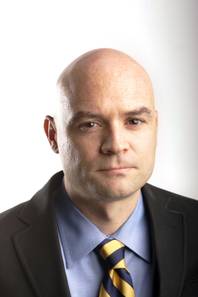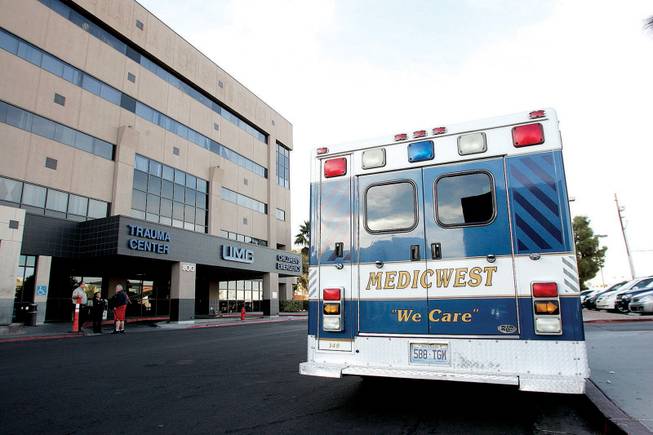Published Wednesday, July 17, 2013 | 2 a.m.
Updated Wednesday, July 17, 2013 | 12:18 p.m.

J. Patrick Coolican
Sun coverage
I recently reported on a state investigation into improper patient transfers from St. Rose Dominican Hospitals - Siena Campus to the region’s only public hospital, University Medical Center.
The investigation found a systemic pattern of shifting patients from the St. Rose Siena campus in Henderson to UMC, where officials there long suspected they were victims of inappropriate transfers.
It turns out, St. Rose was not the only local hospital improperly moving patients to the taxpayer-supported UMC, which is running a deficit this year of about $30 million.
Valley Hospital Medical Center, Spring Valley Hospital Medical Center, Sunrise Hospital & Medical Center and Desert Springs Hospital also were found to have “inappropriately transferred” patients to UMC. Inappropriate, because in most cases the hospitals didn’t have the sort of doctors under contract that they were required by law to have.
For those hospitals to then send their patients to UMC has consequences for UMC — and thus, taxpayers. They exacerbate the overcrowding in the UMC emergency room, overburden certain medical specialists there and potentially cost taxpayers money if the patients are uninsured or underinsured, which is often the case.
In no case was patient safety put at risk, the state found. But the transfers were frequent, occurring at each hospital at least 10 times during the separate investigations that lasted a month or so, according to state documents.
The biggest reason: The hospital ERs didn’t have the kind of physicians on duty that the state requires, especially urologists and ear, nose and throat doctors.

University Medical Center is Clark County's only publicly funded hospital.
If specialists are not available, the hospital is required to transfer the patient to another hospital that can provide the care, which is typically UMC. But these transfer agreements with UMC are not a license to fail to provide specialty services such as urology and automatically send patients away.
In fact, UMC officials believe many of the patients transferred there — supposedly in need of a specialist — did not actually need one and should have been handled by ER doctors at the originating hospitals.
Between August 2011 and May 2012, Universal Health Services hospitals — the for-profit chain that includes Valley, Spring Valley, Desert Springs and two others — transferred 191 patients to UMC, according to data compiled by UMC officials. More than one-third were uninsured, while another 13 percent were patients on Medicaid, the government insurance for the poor and disabled that offers notoriously inadequate compensation rates.
This means nearly half the patients would be considered financially undesirable.
During the same time, area HCA Health Care hospitals — the parent company of Sunrise and several other hospitals in the valley — sent 119 patients to UMC, with more than one-third either Medicaid or uninsured.
All told, UMC was the recipient of 545 patients from area hospitals during just that single 10-month period; 46 percent of them were either Medicaid or uninsured patients.
As UMC CEO Brian Brannman said to me, “The reason these private hospitals can be so profitable is because we’re here to take the losses.”
But believe it or not, this is a good-news story. All this scrutiny from state investigators — and perhaps even annoying newspaper columnists — may be having an effect.
The hospitals in question are now in discussions with UMC to work out a long-term solution to the issue of patient transfers.
After I contacted them, I received this rather remarkable joint statement from the hospital executives, including Brannman, as well as Todd Sklamberg of Sunrise, Karla Perez of Valley and Rod Davis of St. Rose.
“The major Southern Nevada hospital systems, including Sunrise Hospital, The Valley Health System, St. Rose Dominican Hospitals and University Medical Center, are collaborating to develop an effective plan that will ensure access for patients who require emergent specialty care. The hospitals are committed to creating both short- and long-term solutions, in collaboration with the Nevada Department of Health and Human Services, to provide the highest level of care to our patients.”
I’m sure there’s a way to go to work out a solution. But this is a good start.
CORRECTION: This story was corrected to reflect that emergency room doctors are not on hospital staffs, but are outside doctors contracted by hospitals to work in emergency rooms. | (July 17, 2013)


Join the Discussion:
Check this out for a full explanation of our conversion to the LiveFyre commenting system and instructions on how to sign up for an account.
Full comments policy